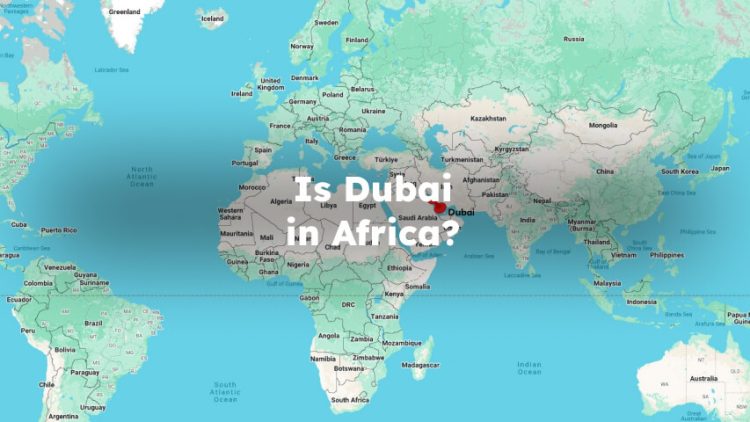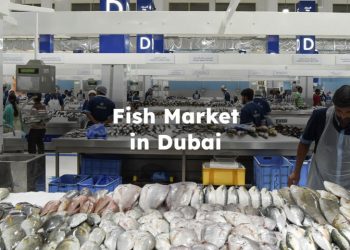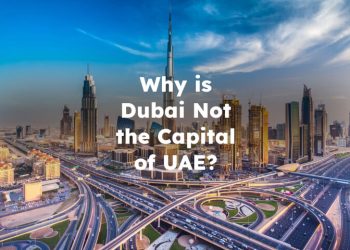Before you go to a new country, it’s important to learn about its geography and culture for a better trip, and we recommend you do the same. For instance, before visiting Dubai, some people knew very little about the city, so they should read more about it. By learning about Dubai, you understand that many others also need to know where this city is located. In summary, Indubaimall wants to point out that this city is in the United Arab Emirates in Asia and is part of the Middle East. By the time you finish this article, you will have more detailed information regarding the question, “Is Dubai in Africa?”
Where is Dubai Located?
Dubai is situated on the Persian Gulf coast. This city shares borders with Abu Dhabi to the south, Sharjah to the north and Oman to the southeast. Dubai is in which country? Dubai lies south of Iran and is the largest city in the UAE. The city covers an area of 4110 square kilometers and is found in the Arabian desert. This sandy desert leads to the Western Hajar mountain range, which is adjacent to Dubai’s border with Oman and Hatta. Dubai lacks natural rivers or forests, but it features a small natural bay known as the Dubai Strait, which is deep enough for large vessels to navigate. This key location has been crucial in Dubai’s development as a worldwide center for business, tourism, and culture. If you’re looking for luxury, adventure, or cultural experiences, Dubai provides an unforgettable trip into the heart of the Middle East.
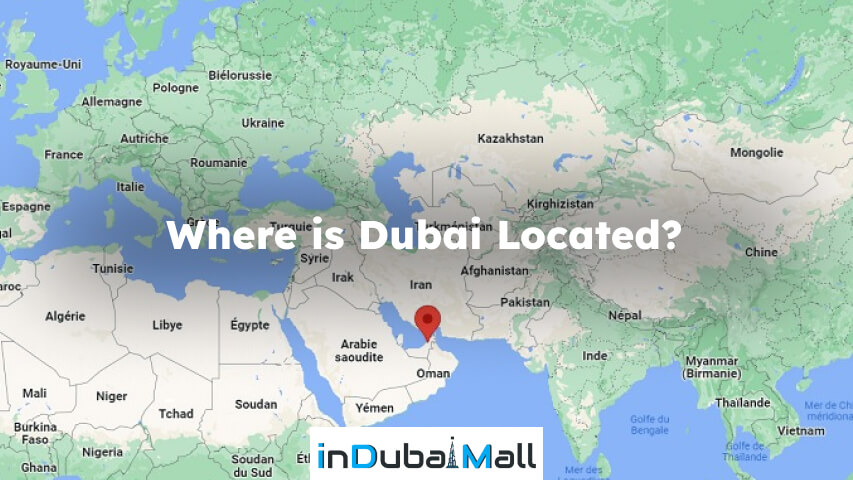
Is Dubai Part of Africa?
Understanding Dubai is in which continent is essential for grasping its geopolitical importance. As part of the Gulf Cooperation Council (GCC), Dubai works with nearby nations such as Saudi Arabia, Kuwait, Bahrain, Oman, and Qatar to improve economic stability and security in the area. This teamwork highlights Dubai’s strategic value in Asia, particularly regarding oil production and trade routes. Is Dubai in Africa? Dubai is clearly situated in Asia, not in Africa or part of it, showcasing a unique mix of tradition and modernity. Its key location in the Middle East boosts its economic importance and adds to its cultural diversity, making it an intriguing place for both tourists and business people. As you learn more about Dubai—be it its impressive buildings, deep history, or lively culture—keep in mind that this lovely city exemplifies the vibrant relationship between geography and identity in the center of Asia.
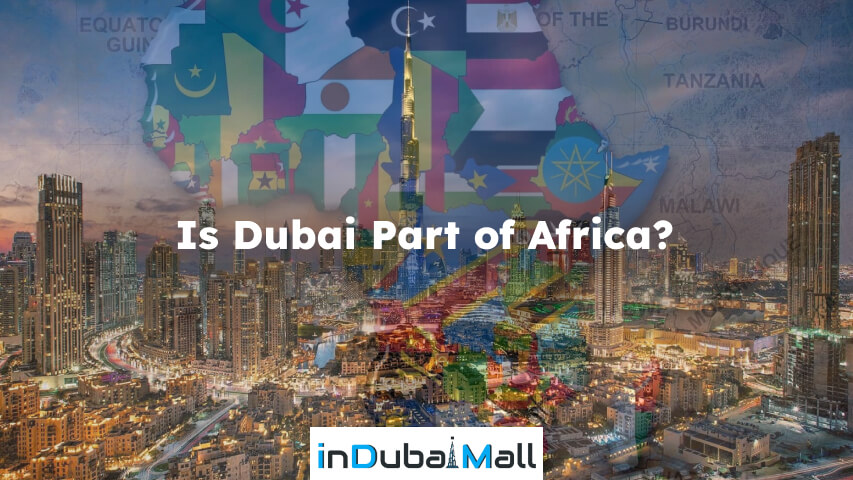
Why the Confusion?
Is Dubai in Africa? Why Dubai and Africa are confused with each other by some people? The misunderstanding regarding Dubai and Africa probably comes from various reasons. Let us explain to you the reasons that you may confuse Dubai with Africa in the following part:
Geographic Location
Is Dubai in Europe? Dubai is situated in the United Arab Emirates (UAE), a nation in the Middle East, adjacent to the Arabian Peninsula and the Persian Gulf. Although it is geographically nearer to Africa than many other regions, it remains separate from the African continent.
Economic and Cultural Connections
Dubai maintains strong economic and cultural relationships with Africa, especially with South Africa and the eastern part of Africa. For instance, numerous South African expatriates reside and work in Dubai, and the UAE has been investing in land across several African nations.
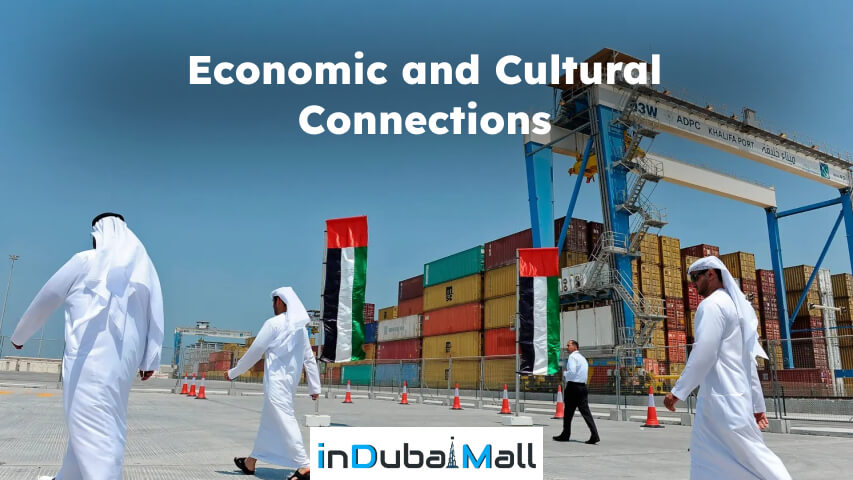
Global Image and Perception
Dubai’s reputation as a modern, futuristic city and its role as a global center have caused some to view it as more global and cosmopolitan rather than a place specifically linked to Africa. Dubai is frequently viewed as a representation of modernity, luxury, and commerce, whereas Africa’s image is more varied, including both difficulties and possibilities.
Political and Diplomatic Relations
The UAE has been actively involved in diplomatic and economic collaborations with African countries, which adds to the complexity of distinguishing between the two areas. Dubai is a key city in the United Arab Emirates (UAE), but its foreign policy mainly reflects the UAE’s broader strategic goals. The UAE is becoming more engaged in Africa, emphasizing economic partnerships, security collaboration, and development aid. This engagement includes building bilateral ties with specific African countries and taking part in regional and international groups such as the African Union.
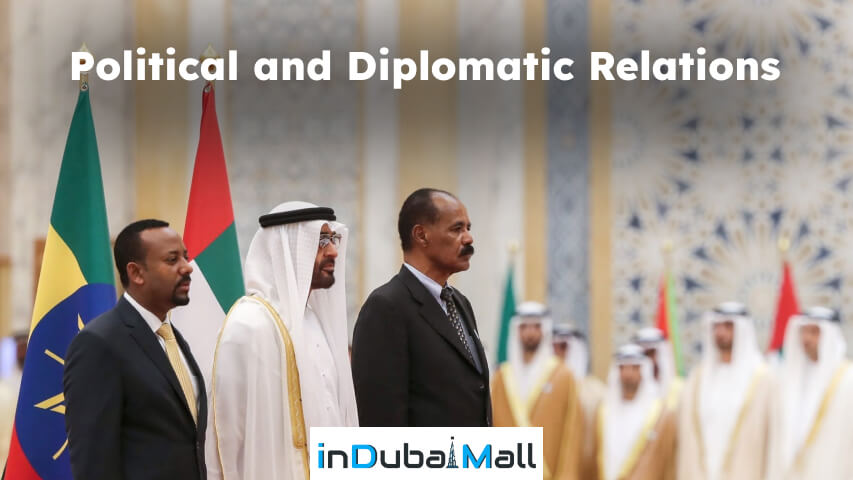

The Relationship Between Dubai and Africa
As it was said before, Dubai and Africa have different location on the map and we can not ask is Dubai an African country or is Dubai Africa. Dubai and Africa are building a stronger and more complex connection, that it seems that Dubai is in Africa, mainly because of shared economic goals and strategic plans. The UAE works closely with many African countries in trade, and South Africa is one of the most important partners. In recent years, the trade between the UAE and South Africa has grown a lot. The UAE buys a lot of goods from Africa, like gold, diamonds, and other valuable stones. The government of Dubai has worked closely with many African countries on important projects related to infrastructure, telecommunications, and tourism.
Dubai World, which is owned by the government, has a special division called Dubai World Africa that focuses on investing in Africa. This division is mainly involved in buying, developing, and managing valuable assets in Africa and the Indian Ocean Islands. In addition, Africa’s closeness to the UAE makes it a natural link for growing global trade, and companies based in Dubai are putting a lot of money into African ports, airports, and other transportation projects. Besides logistics and energy, food supply is another important area for trade between the UAE and Africa. Both countries care a lot about this because of their farming abilities, so UAE businesses can invest in African agriculture, especially in places like Morocco and Sudan, to help keep food supplies reliable.


